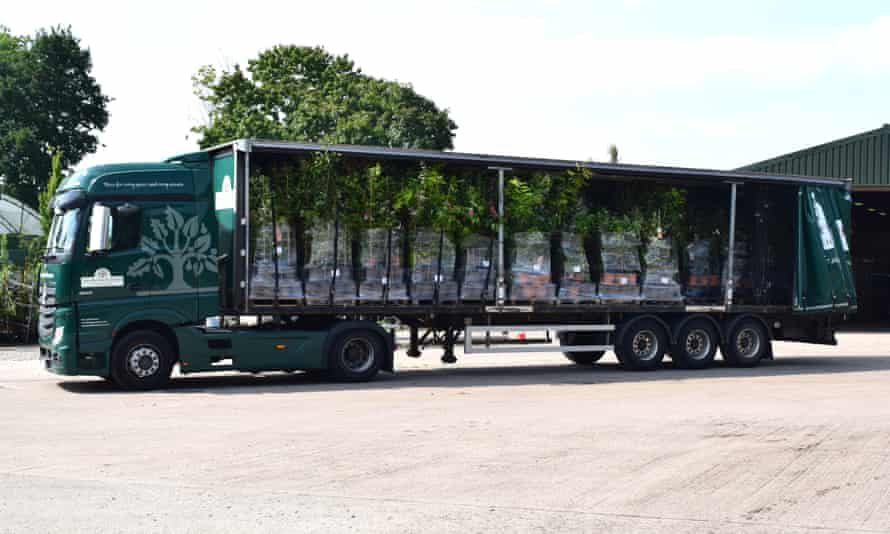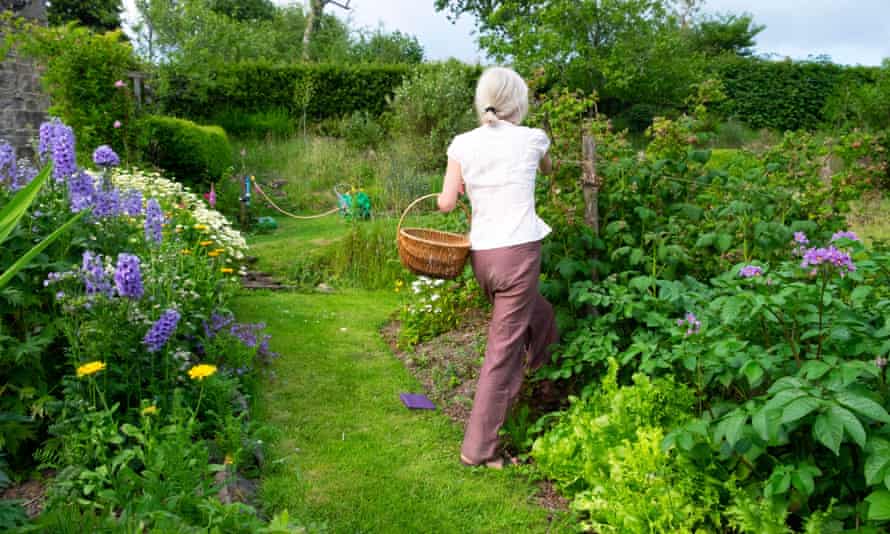Delphiniums, lupins and other hardy perennials are hard to come by. Roses, fruit trees and house plants are in short supply. As for garden furniture, and equipment, if you think you can walk into a garden centre today and buy whatever you desire, think again.
Garden retailers across the UK are facing a “perfect storm” of Brexit and the pandemic, according to the Horticultural Trades Association (HTA). Demand is two to three times higher than normal, thanks to the extra three million people who have taken up gardening during lockdown. Meanwhile, supply has fallen by around 50% over the past year.
British garden wholesalers, already hit hard by global supply chain issues, social distancing measures and a shortage of migrant workers, are now battling with new red tape around plant imports from the EU. Throw in Brexit-related congestion at British ports and a giant container ship blocking the Suez canal and you end up with a shortage of plants and patio furniture – and a lot of disappointed gardeners.
“It’s the biggest year for demand in the industry’s history, without a doubt, combined with the most complicated supply issues ever,” says Boyd Douglas-Davies, president of the HTA and director of British Garden Centres, a group of 58 retailers. “I’ve been working in garden centres for 35 years. I’m born and bred into it. And this is, without a doubt, the most challenging supply year that we’ve ever seen.”
Plants from Europe are now subject to health inspections in the EU. Importers must also notify the British government of their intention to bring those plants into the country before they arrive, and their goods can be subject to ad hoc health inspections in the UK as well.
Douglas-Davies estimates that since Brexit it can take up to 48 hours longer for plants to arrive from Belgium and the Netherlands. “You might say that’s not very long. But of course, that’s 48 hours on a lorry. That’s not where plants are destined to be.”

One importer lost all his plants from Portugal after a flight was cancelled due to the pandemic and low demand for holidays to Britain, followed by a “Brexit-induced plant inspection” in the UK, which wouldn’t have happened last year. The delay of two days meant “when they finally arrived, the plants were dead”.
Brexit complications are also affecting orchids, indoor figs, yuccas and other foliage plants. “Almost all of the house plants sold in the UK are grown in Holland or Belgium.” Gardening tools and watering equipment also tends to come from Europe. “Those are also subject to further delays and increased costs,” Douglas-Davies says.
Garden furniture and equipment such as mini greenhouses are in particularly short supply, he says. People are rushing to prepare their gardens for long-awaited reunions with family and friends, which will be permitted in private gardens again when the outdoor rule of six is reinstated in England on Monday. “As quickly as furniture arrives, it’s already been sold and goes straight to customers. It’s selling out very, very quickly.”
Most garden furniture and equipment is made abroad and shipped to the UK on a schedule decided six months ago. The tremendous demand to sit outside in the early spring was not anticipated then. Plus, the ports are clogged up with unwanted goods that were imported for retailers that collapsed during lockdown – and the port congestion which began on 1 January has continued. “That really stems from a Brexit issue. There are delays and it is taking about a fortnight longer than usual to ship products to the UK.”
David Green is the founder of Chapel Cottage Plants, a hardy perennial grower in Cambridgeshire. He says: “Brexit is causing major problems. Because it’s very difficult to get plants into the UK, the British grower is overwhelmed with demand.”

Garden centres are requesting six to 10 times as many plants as they normally would in March, even when there was high demand. British weather means it is impossible for local growers to fulfil all these orders, especially because last year – after the industry was brought to a standstill by the closure of garden centres during lockdown – “everyone was frightened to invest”, says Green. “As a result, “supply to retailers has remained weak.” He estimates garden centres and nurseries are receiving “around half” the plants they normally would.
Meanwhile, he is sitting on about 1.5 million units of homegrown British perennial plants, praying for a warm April. “I’m just hoping they soon become large and saleable plants.”
The problem Green faces then is getting enough labour to process them. “We’ve struggled with labour terribly due to Brexit reducing the amount of foreign labour coming in. Unskilled British labour is very difficult to find for cleaning and processing the plants, ready to package for the garden centre. Normally, we would employ eastern Europeans.”
Green is using three recruitment companies and has only managed to fill half the quota he requires: 40 workers, instead of 80. This has already brought down his sales by as much as 50% this season, he estimates. “We know the demand is there, but we’re unable to fill it.”
This content first appear on the guardian

Muchas gracias. ?Como puedo iniciar sesion?